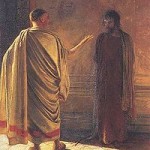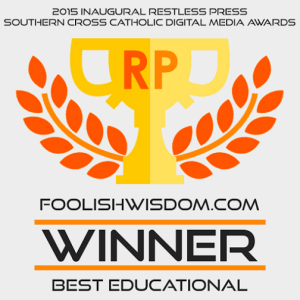
Is truth possible?
I was filling in an online form recently and the security question at the end was “2+9=” and I had to type in the answer to submit the page. I found it interesting that this very mainstream form on the website of this very mainstream company was not only telling me that there was objective truth but that they actually knew what it was! If I had tried to type in that 2+9=5 I would have been told I was wrong. No message was going to appear and tell me that while they respected my freedom to believe that 2+9=5 they preferred the response to be eleven. The message would very simply say, ‘Incorrect, try again’.
I found this small incident amusing because for the most part we exist in a ‘truth free’ society where definitive statements are not welcome. Our society does of course acknowledge right and wrong but these are mostly understood to be established by the Parliament and upheld by the police. Something that is ‘right’ today can be declared ‘wrong’ tomorrow by a simple legislative adjustment. People have lost the idea that there is a genuine reality that is bigger than the law. To declare that something is right or wrong is very different to stating that something is true or untrue.
The debate over the possibility of truth is not a new phenomenon. Two thousand years ago Pontius Pilate, Prefect of the Province of the Roman Empire in Judea, had a man brought before him who claimed to bear witness to truth. Pilate is recorded as famously asking this Jesus figure, Quid est veritas, what is truth? Perhaps Pilate was genuinely asking for a response or perhaps he was stating that there was no such reality as truth. Either way, Pilate had his particular version of truth and so the rest of the story to do with Jesus is as they say…history.
Before being elected as Pope Benedict XVI, Joseph Ratzinger once stated that “Truth is not determined by the majority vote”. In other words, even if the entire world legislated and believed that 2+9=5 they would quite simply be wrong. The belief that real truth exists is the belief that there is a reality bigger than our ability to perceive or understand it.
You might have heard someone say ‘that is your truth’ or ‘this is my truth’ but we should not allow such a statement to pass unchallenged. If something is true then by its very nature it must be true for everyone. Either the words you are reading now are truly here or they are not. Their existence does not depend on you having seen or read them. We really have only two choices then: to acknowledge that some definitive truth can exist, or, to state that the idea of truth is impossible.
We live in a society that desires to create reality in response to what the majority vote wants. Euthanasia is good if enough people say it is. Same sex marriage is real if enough people say it is. Drugs can be legalised if enough people want it. Our moral and ethical code becomes not something that we strive for to make ourselves better people, but rather something that is adjusted to where we feel comfortable.
In all this, what is legal becomes the mark for what is moral and that is a dangerous path to trod. If the measure of right and wrong (and thus the standard of ‘truth’) is in the hands of a person or a political party then the only standard they have is themselves. And that has been the way on for every dictator from Julius Caesar to Pol Pot to Slobodan Milosevic. It is easy to find a very long list of dictators ranging from the benevolent to the inhumane but they share in common the notion that their truth is the truth.
When we as a ‘modern’ society decided that it would be better to live with our personal truths instead of under the one truth, we may not have realised that we handed over to anyone who wanted to take it the ideas of right and wrong. Genuine happiness however is not to be found in creating our own realities and labeling them as a truth. Happiness comes in discovering what is the truth and living our lives in accordance with that. After all, two plus nine will always equal eleven whether we like it or not.


